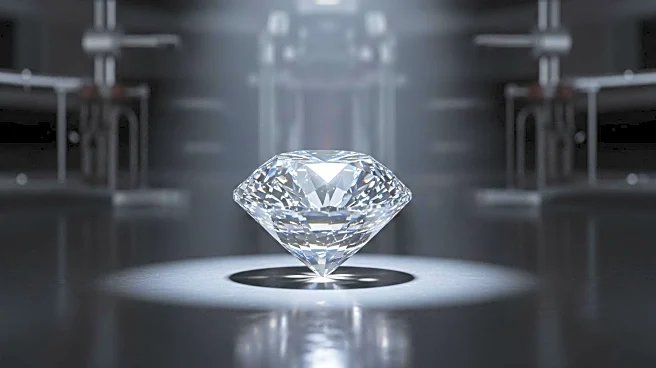What's Happening?
Researchers have identified defects in diamond capsules as a significant barrier to achieving nuclear fusion. These capsules, used to store hydrogen fuel in fusion reactors, develop imperfections under extreme pressures, which can disrupt the symmetry of implosions necessary for fusion. The study, published in Matter, highlights how these defects can reduce energy yield or prevent ignition, complicating efforts to harness fusion as a clean energy source. Despite the potential of fusion to generate massive energy without radioactive waste, the technology remains out of reach due to such material challenges.
Why It's Important?
The findings underscore the technical hurdles in advancing nuclear fusion, a potential game-changer for clean energy. Fusion promises a virtually limitless energy supply without the long-lived radioactive waste associated with fission. However, the discovery of diamond defects adds to the list of challenges, potentially delaying the realization of fusion technology. This has implications for energy policy and investment, as stakeholders may need to reassess timelines and funding for fusion research. The study also emphasizes the need for continued innovation in materials science to overcome these barriers.










